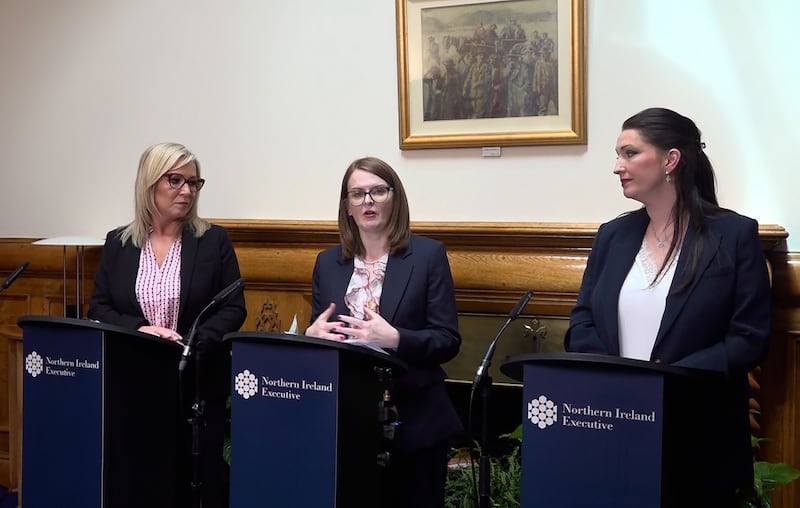When the Minister for Finance unveiled the recent budget, the reality of the difficult choices ahead of us was brought into sharp focus.
With the assembly told that bids from fellow ministers totalled three times the available funds, if ever we needed confirmation that our public purse is in difficulty, this was it.
Whilst it is hard to put any positive spin on this news, what is clear to many of us is that we need to rethink how we fund public services, and to really understand the connection between funding and supporting the prosperity and wellbeing of people across Northern Ireland.
Can we see changes in the life outcomes for our most vulnerable in society through funded policy decisions? Are we maximising the return on investment and measuring it using metrics that really matter?
This requires an approach that tracks prevention through to cure and, critically, for government to reflect a cross-cutting approach in how it funds and delivers public services. The previous draft Programme for Government understood this and it is important that the lack of delivery attached to this doesn’t taint our assessment of its success.
That being said, the reality is that we are playing catch-up on five years without a government in the past eight, coupled with the challenge of agreeing priorities across the four executive parties; there is a balance to be made between pace, pragmatism and populism.

It is clear that making Northern Ireland work better will require a more sustainable fiscal package, and critically this must be accompanied by a new approach to delivery. This is a real opportunity for government to meaningfully collaborate with the community and voluntary sector.
We understand the benefit of pooling expertise, resources and solutions to ensure that we meet the needs of the people our members support. With over 50,000 people employed in this sector there is no shortage of innovative ideas and grassroots knowledge of what works.
There have been warm words about co-design and co-production over recent years. This needs to be much more authentic, deliberate and purposeful, and embedded into the design and delivery of public policy and services.
So how can we stretch the pot to address short-term need whilst being ambitious for long-term prosperity for all?
Generating prosperity and reducing poverty requires investment in physical and social infrastructure and is ultimately a good return on investment.
This means reforming the policy and budget-making process. Working in silos is inefficient and plays to unhealthy competition rather than collegiality.
This also means attaching the budget to policy priorities. The cart before horse approach of allocating money without a Programme for Government is at odds with outlining how the executive will tackle the many challenges we are facing.
Collaboration within government should be echoed by collaboration outside of government too. Civil servants aren’t necessarily best placed to understand the mechanics and complexities of service delivery; it is the voluntary and community sector who hold this expertise, and who ultimately can demonstrate and deliver more efficient and impactful ways of working.
The interim Fiscal Framework published recently sets a positive marker down on the opportunity to do things differently, and to be more strategic when it comes to public money.
Our sector is already involved in supporting the transformation of health and social care, underpinning changes in justice, highlighting environmental challenges, and supporting families and children most in need. But we are only able to just about stand still as it is.
Necessity is the mother of all invention, and as we find ourselves facing into a challenging time ahead, we need our politicians to be think strategically and deploy a resource hidden in plain sight in the wealth of experience and expertise the voluntary and community sector can lend, and indeed lead.

